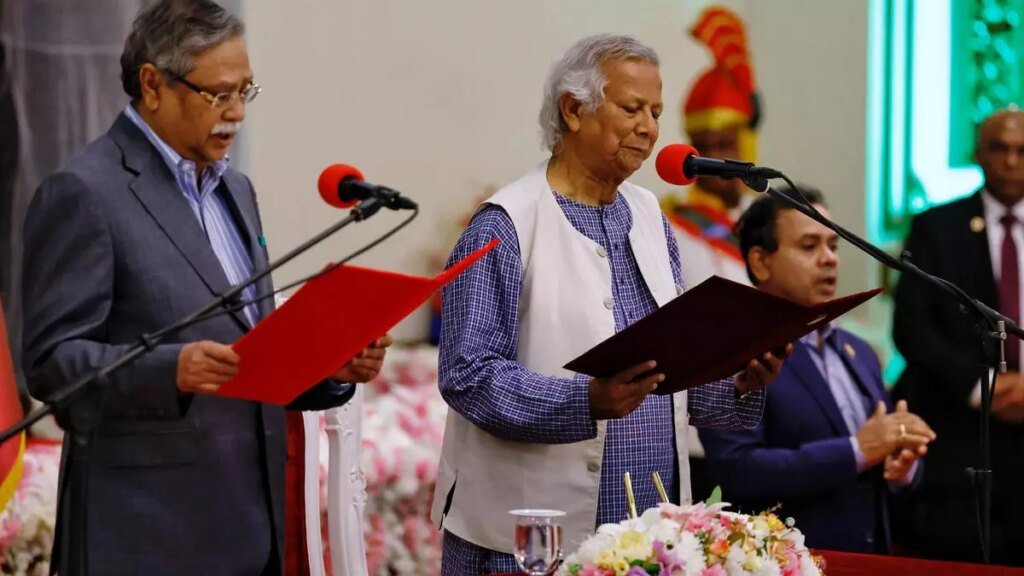Editorial. Bangladesh on the boil

There’s never a dull moment on the Indian subcontinent. The latest excitement has been over the extraordinary developments in Bangladesh last week which led to its long serving prime minister Sheikh Hasina , to flee the country, and a Nobel laureate without a political base, to become the chief adviser to an interim government this week, equivalent to prime minister.
There are two aspects to what’s happened. One is internal to Bangladesh. The other is how these changes affect India. The internal aspects can be clearly identified. Bangladesh could well become a country run by the military and the Islamists, or by one of them. Whatever happens, one thing is certain: the secular, democratic approach of the country’s founder, Mujibur Rehman, is now not the preferred option. This option could revive of course, as it has done twice in the last 54 years. But that will take some time.
It’s what happens in the meantime that brings up the second aspect, namely, how it will all affect India. There are economic factors that even a politically anti-India government in Bangladesh will have to be mindful of (Nepal, Sri Lanka and the Maldives came to realise this). The most important of this is the impact on bilateral trade, which was $13 billion in FY24 — mostly petroleum, chemicals, cotton, iron and steel and vehicles exports from India and textiles and garment imports from Bangladesh, with a trade surplus of nearly $10 billion in India’s favour. The two countries have also been discussing a Free Trade Agreement. There is also a bilateral plan to promote infrastructure connectivity — physical, energy and digital — not to mention the three lines of credit amounting to $8 billion extended by India. So, it could well be business as usual after the interim government gives way to a properly elected one. The Bangladesh constitution requires this to happen in three months.
That said, it’s also true that the new elected government will cater to the optics and demands of the anti-Indian mood in the country. This could take two forms, both of which increase Bangladesh’s nuisance value. One is the level of protection afforded to the minorities, namely the Hindus and Christians. The former, in particular, are bound to feel very vulnerable if the government is lackadaisical in its approach. The second is the export of terrorism across the border to the eastern states. Prime Minister Hasina had protected the minorities and stamped out terrorist training camps. India will have to work hard at ensuring that the new government continues with her policies. There could well be another fallout, this time for the politics of West Bengal. This would happen if there is a huge inflow of Hindu refugees into the state. The new citizenship law requires India to admit persecuted minorities from some neighbouring countries, of which Bangladesh is one. Finally, the role of the US, China and Pakistan will be an important determinant of Bangladesh’s policy towards India.








